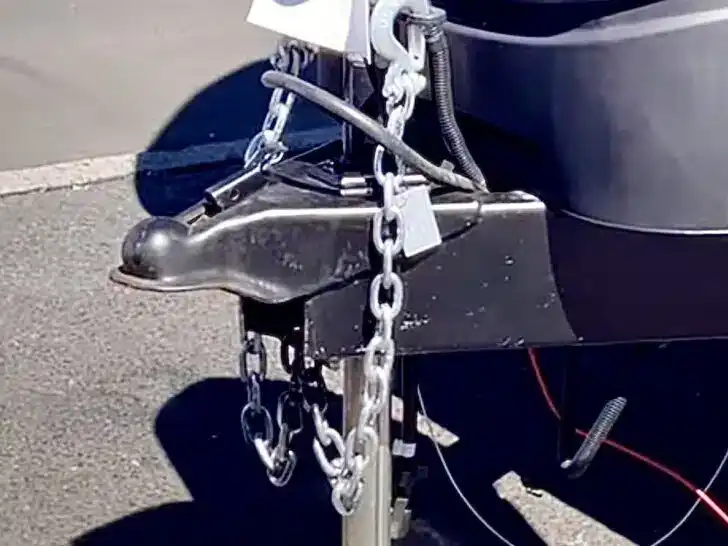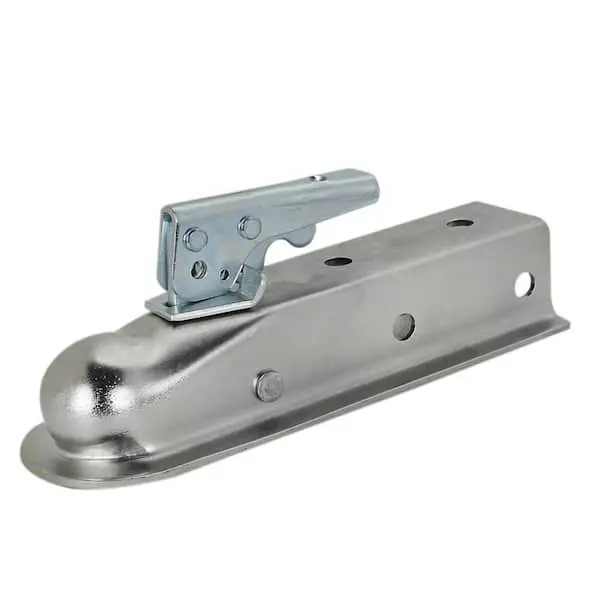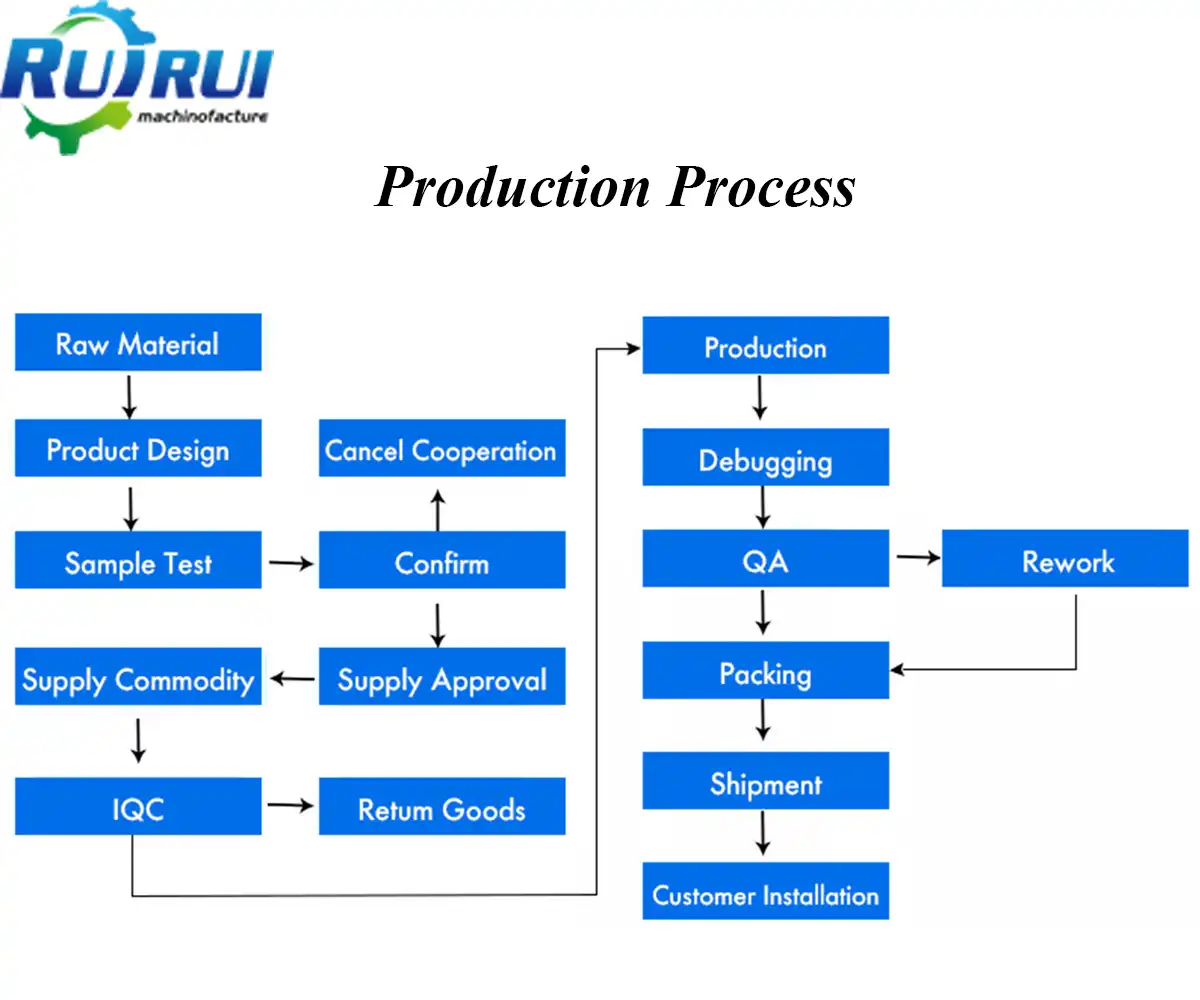The Best TRAILER COUPLER for Heavy-Duty Applications: A Quick Guide
2025-09-15 10:37:32
Selecting the optimal TRAILER COUPLER for heavy-duty applications requires careful consideration of load capacity, durability, and safety features. The right coupler serves as the critical connection point between your towing vehicle and trailer, directly impacting operational efficiency and safety standards. Heavy-duty applications demand specialized engineering solutions that can withstand extreme loads, harsh environmental conditions, and continuous operational stress. Understanding the various types of trailer couplers, their specific applications, and the technical specifications that define quality performance is essential for making informed procurement decisions that ensure long-term reliability and cost-effectiveness.

Understanding Heavy-Duty TRAILER COUPLER Requirements
Load Capacity and Weight Distribution Analysis
When evaluating TRAILER COUPLER options for heavy-duty applications, load capacity stands as the primary consideration that determines operational safety and performance reliability. Professional-grade trailer ball couplers must be engineered to handle substantial vertical loads while maintaining structural integrity under dynamic stress conditions. The distribution of weight across the coupler assembly directly affects the stability of the entire towing system, making it crucial to select components that can manage both static and dynamic loading scenarios effectively. Modern heavy-duty TRAILER COUPLER designs incorporate advanced metallurgical techniques and precision engineering to achieve maximum load-bearing capabilities. High-quality steel construction, often featuring alloy compositions specifically formulated for strength and durability, provides the foundation for reliable performance under extreme conditions. The heat treatment processes applied to critical wear surfaces ensure that the coupler maintains its structural properties even after extended periods of heavy use. Professional applications typically require couplers capable of handling vertical loads ranging from 15,000 to 60,000 pounds, with corresponding gross trailer weight capacities that match the specific operational requirements. The engineering behind weight distribution in heavy-duty applications involves careful consideration of stress concentration points and load transfer mechanisms. A properly designed Trailer Ball Coupler features reinforced mounting points, precision-machined contact surfaces, and optimized geometry that ensures even load distribution across the entire assembly. The integration of safety factors in the design process provides additional margin for unexpected load variations and dynamic forces encountered during actual towing operations. This comprehensive approach to load management ensures that the coupler performs reliably across a wide range of operating conditions while maintaining the safety standards required for professional applications.
Material Selection and Construction Standards
The selection of appropriate materials for heavy-duty TRAILER COUPLER construction directly impacts performance, longevity, and operational reliability in demanding applications. High-grade steel alloys, specifically engineered for strength and fatigue resistance, form the backbone of professional-quality coupler assemblies. These materials undergo rigorous testing and quality control processes to ensure they meet or exceed industry standards for mechanical properties, corrosion resistance, and dimensional stability. The forging processes used in manufacturing create components with superior grain structure and enhanced mechanical properties compared to cast alternatives. Advanced surface treatment technologies play a crucial role in extending the service life of Trailer Ball Coupler assemblies in harsh operating environments. Zinc plating, powder coating, and specialized corrosion-resistant finishes provide multiple layers of protection against environmental factors that can compromise structural integrity over time. These protective systems are carefully selected based on the specific operating conditions and environmental challenges that the coupler will encounter during its service life. The application of these finishes requires precise process control to ensure uniform coverage and optimal adhesion characteristics. Quality assurance protocols in professional manufacturing environments ensure that each TRAILER COUPLER meets stringent performance standards before reaching end users. Comprehensive testing procedures, including load testing, fatigue analysis, and environmental exposure assessments, validate the performance characteristics of each product design. The implementation of ISO quality management systems provides systematic oversight of manufacturing processes, material sourcing, and final product inspection procedures. This multi-layered approach to quality control ensures consistent performance and reliability across all production batches while maintaining compliance with relevant industry standards and regulatory requirements.
Safety Features and Compliance Standards
Safety considerations in heavy-duty TRAILER COUPLER design encompass multiple aspects of operational performance, including secure attachment mechanisms, fail-safe features, and compliance with industry safety standards. Modern coupler designs incorporate multiple safety elements that work together to prevent accidental disconnection and ensure reliable operation under all normal operating conditions. The latch mechanisms employed in professional-grade couplers feature positive locking systems that provide clear visual and tactile confirmation of proper engagement. The engineering of safety systems in Trailer Ball Coupler assemblies involves careful analysis of potential failure modes and the implementation of design features that prevent or mitigate these risks. Emergency retention systems, secondary locking mechanisms, and visual inspection points allow operators to quickly verify proper installation and operation. The integration of these safety features requires precise manufacturing tolerances and quality control procedures to ensure consistent performance across all units produced. Compliance with industry safety standards represents a fundamental requirement for professional-grade TRAILER COUPLER products used in commercial applications. Standards organizations such as SAE International and ASTM provide comprehensive specifications that define minimum performance requirements, testing procedures, and quality standards for trailer coupling devices. Manufacturers who achieve compliance with these standards demonstrate their commitment to producing products that meet the highest levels of safety and performance reliability. The certification processes involved in achieving compliance provide independent verification of product performance and safety characteristics, giving end users confidence in their equipment selections.

Selecting the Right TRAILER COUPLER for Specific Applications
Commercial Transportation and Logistics Applications
Commercial transportation operations demand TRAILER COUPLER solutions that can withstand the rigorous demands of daily use while maintaining consistent performance and reliability. The logistics industry relies on efficient towing systems to transport goods across various terrains and weather conditions, making the selection of appropriate coupler technology critical to operational success. Professional-grade Trailer Ball Coupler assemblies designed for commercial use incorporate enhanced durability features, extended service intervals, and maintenance-friendly designs that minimize downtime and operational disruptions. Fleet operators require TRAILER COUPLER systems that can accommodate a wide range of trailer types and loading configurations while maintaining consistent operational procedures across their entire fleet. Standardized coupler designs that work with multiple ball sizes and mounting configurations provide operational flexibility while reducing inventory requirements and training complexity. The implementation of quick-release mechanisms and user-friendly adjustment features enables efficient coupling and uncoupling operations, reducing the time required for each connection cycle and improving overall productivity. The economic considerations associated with commercial TRAILER COUPLER selection extend beyond initial purchase price to include factors such as service life, maintenance requirements, and operational efficiency impacts. High-quality coupler assemblies that provide extended service intervals and reduced maintenance requirements often deliver superior total cost of ownership compared to lower-cost alternatives. The reliability advantages provided by premium coupler designs translate into reduced downtime, fewer service calls, and improved customer satisfaction levels that justify the investment in superior equipment.
Agricultural and Industrial Equipment Transport
Agricultural operations present unique challenges for TRAILER COUPLER systems due to the combination of heavy loads, harsh environmental conditions, and seasonal usage patterns that characterize farm equipment transport. The transport of implements such as plows, seeders, and harvesters requires coupler assemblies capable of handling both the static weight of the equipment and the dynamic forces generated during field operations and road transport. Specialized Trailer Ball Coupler designs for agricultural applications often feature enhanced corrosion protection and reinforced construction to withstand exposure to fertilizers, chemicals, and abrasive soil conditions. Industrial applications requiring heavy equipment transport demand TRAILER COUPLER solutions that can accommodate oversized loads and specialized transport configurations. Construction equipment, manufacturing machinery, and industrial components often exceed standard weight and dimension limitations, requiring custom coupler solutions that meet specific operational requirements. The engineering of these specialized applications involves careful analysis of load distribution, stress concentration, and safety factors to ensure reliable performance under extreme conditions. The seasonal nature of many agricultural operations requires TRAILER COUPLER systems that maintain their performance characteristics despite extended periods of storage or intermittent use. Corrosion-resistant finishes, sealed bearing systems, and weather-resistant components ensure that couplers remain functional and reliable even after extended periods of inactivity. The ability to perform reliably after storage periods is particularly important for seasonal equipment that may remain unused for months at a time before being pressed into service during critical operational periods.
Recreational and Specialty Vehicle Applications
Recreational vehicle applications for TRAILER COUPLER systems encompass a wide range of towing scenarios, from lightweight utility trailers to heavy-duty boat and RV transport. The diversity of recreational towing applications requires flexible coupler designs that can accommodate varying load capacities while maintaining ease of use for operators who may not have extensive towing experience. Consumer-friendly features such as clear operating instructions, visual alignment aids, and simplified adjustment procedures enhance safety and user satisfaction in recreational applications. Boat transport represents a specialized category within recreational TRAILER COUPLER applications due to the unique loading characteristics and environmental exposure associated with marine operations. The combination of heavy loads, exposure to saltwater environments, and frequent launching and retrieval cycles requires coupler assemblies with enhanced corrosion protection and robust construction. Marine-grade Trailer Ball Coupler designs often incorporate specialized materials and finishes specifically selected for their resistance to saltwater corrosion and their ability to maintain performance in challenging marine environments. Specialty vehicle transport applications, including race car trailers, show equipment transport, and custom vehicle hauling, require TRAILER COUPLER solutions that can accommodate unique load configurations and specialized operational requirements. These applications often involve high-value cargo that demands the highest levels of safety and reliability from all system components. The customization capabilities offered by professional manufacturers enable the development of specialized coupler solutions that meet the specific requirements of these demanding applications while maintaining compliance with relevant safety standards and regulations.
Advanced Features and Technology in Modern TRAILER COUPLER Design
Innovative Engineering Solutions
Modern TRAILER COUPLER technology incorporates advanced engineering principles and manufacturing techniques that significantly enhance performance, reliability, and user experience compared to traditional designs. The integration of computer-aided design tools and finite element analysis enables engineers to optimize coupler geometry for maximum strength while minimizing weight and material usage. These advanced design methodologies result in coupler assemblies that deliver superior performance characteristics while maintaining cost-effectiveness for end users. The development of specialized alloy compositions and heat treatment processes has revolutionized the performance capabilities of modern Trailer Ball Coupler assemblies. Advanced metallurgical techniques enable the production of components with optimized strength-to-weight ratios, enhanced fatigue resistance, and improved wear characteristics. These technological advances translate into longer service intervals, reduced maintenance requirements, and improved operational reliability for end users across all application categories. Manufacturing automation and precision machining technologies ensure consistent quality and dimensional accuracy in modern TRAILER COUPLER production. Computer-controlled machining centers, automated inspection systems, and statistical process control methodologies provide unprecedented levels of manufacturing precision and quality consistency. The implementation of these advanced manufacturing technologies enables the production of coupler assemblies that meet increasingly stringent performance requirements while maintaining competitive pricing for professional and commercial applications.
Quality Control and Testing Procedures
Comprehensive quality control systems in professional Trailer Ball Coupler TRAILER COUPLER manufacturing encompass every aspect of the production process, from raw material inspection through final product testing and certification. Advanced testing methodologies, including non-destructive testing techniques, mechanical property verification, and accelerated life testing, provide thorough validation of product performance characteristics. These rigorous testing procedures ensure that each coupler assembly meets or exceeds specified performance standards before shipment to end users. The implementation of statistical quality control methods enables continuous monitoring and improvement of manufacturing processes while maintaining consistent product quality. Real-time data collection and analysis systems provide immediate feedback on process performance and product characteristics, enabling rapid identification and correction of any deviations from established quality standards. This systematic approach to quality management ensures that customers receive products that consistently meet their performance expectations and operational requirements. Third-party certification and independent testing provide additional validation of TRAILER COUPLER performance and safety characteristics. Industry-recognized testing laboratories and certification organizations offer unbiased evaluation of product performance against established standards and specifications. The achievement of third-party certifications demonstrates manufacturer commitment to quality and provides customers with independent verification of product capabilities and safety characteristics.
Customization and OEM Support Services
Professional manufacturers of TRAILER COUPLER systems offer comprehensive customization services that enable the development of specialized solutions for unique applications and operational requirements. Engineering support services, including load analysis, design optimization, and application-specific modifications, ensure that customers receive coupler solutions perfectly matched to their operational needs. These customization capabilities extend beyond simple dimensional modifications to include specialized materials, unique mounting configurations, and application-specific performance enhancements. OEM support programs provide comprehensive technical assistance throughout the product development and implementation process. Experienced engineering teams work closely with customers to understand their specific requirements and develop optimal solutions that meet both performance and cost objectives. The availability of rapid prototyping capabilities and accelerated development timelines enables quick evaluation and implementation of custom solutions for time-sensitive projects and applications. Long-term partnership relationships with OEM customers provide ongoing support for product improvements, cost optimization, and performance enhancement initiatives. Continuous collaboration between manufacturers and end users enables the development of next-generation TRAILER COUPLER technologies that address evolving operational requirements and industry challenges. These partnerships benefit both parties through shared technical expertise, reduced development costs, and accelerated time-to-market for new product innovations.

Conclusion
Selecting the optimal TRAILER COUPLER for heavy-duty applications requires careful evaluation of load requirements, safety features, and operational conditions to ensure reliable performance and long-term value. The combination of advanced materials, precision engineering, and comprehensive quality control systems available from professional manufacturers provides solutions that meet the demanding requirements of commercial, industrial, and specialized applications while maintaining competitive cost structures.
As a leading China TRAILER COUPLER factory, China TRAILER COUPLER supplier, and China TRAILER COUPLER manufacturer, Qingdao RUIRUI Machinary Co., LTD offers comprehensive China TRAILER COUPLER wholesale solutions with competitive TRAILER COUPLER price points and exceptional High Quality TRAILER COUPLER products available for immediate delivery. Our extensive manufacturing capabilities, ISO-certified quality systems, and experienced engineering team ensure that customers receive TRAILER COUPLER for sale that meets the highest standards of performance and reliability. For detailed specifications, custom solutions, or pricing information, contact our technical team at info@qdkshd.com to discuss your specific requirements and discover how our advanced manufacturing capabilities can support your operational success.
References
1. Heavy Equipment Appraisal. "6 Trailer Coupler Types: Safer & Smarter Towing." September 2024.
2. Lippert Components. "Understanding the Different Types of Trailer Couplers & Latches." Technical Documentation, 2025.
3. Trailer Parts Outlet. "Understanding Trailer Couplers: A Guide for Safe and Effective Towing." Industry Guide, December 2023.
4. SAE International. "Trailer Couplers and Hitches - Performance Requirements and Test Procedures." SAE Standard J684, Society of Automotive Engineers.
Send Inquiry
You may like
